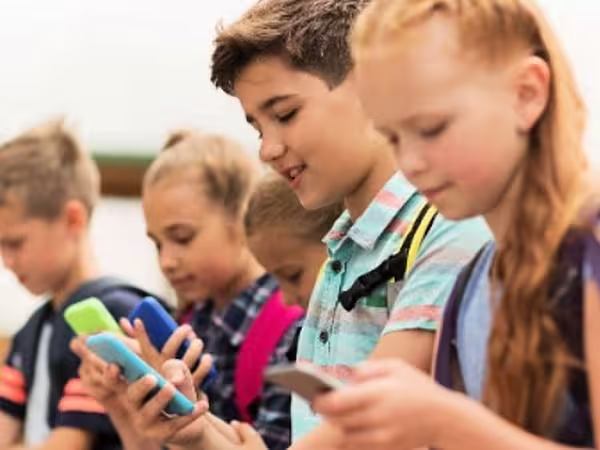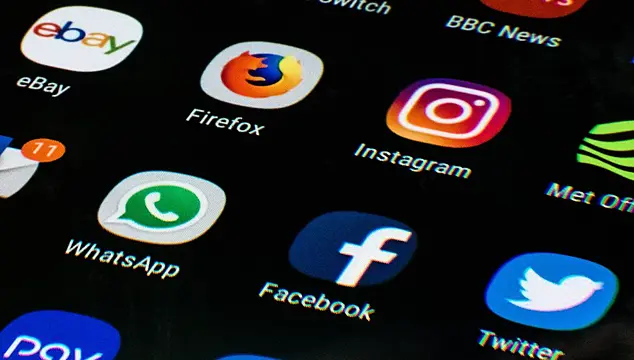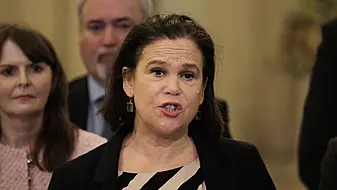With the recent revelations about the way Instagram affects the mental health of teenage girls, more concerns are being raised about the negative impact social media can have on young people.
Recent research from the Irish charity CyberSafeKids shows that 93 per cent of children aged 8–12 own smart devices and 84 per cent are signed up to social media and messaging apps.
As the online world develops at a rapid pace and kids jump from app to app, some parents may feel out of depth or worried about their child’s activity online.
A lot of onus is put on “responsible parenting” for protecting kids online, rather than the major tech companies who have the power to monitor and regulate their sites.
Despite the power for ensuring online safety lying heavily with policymakers and tech companies, one thing concerned parents can do is improve their awareness of the risks that can come with the social media sites their kids are using.
Concerns with popular apps
According to CyberSafeKids, the most popular apps among Irish kids aged 8-12 are YouTube, TikTok, Whatsapp, and Snapchat. Instagram, however, is more popular with those aged 13 and older.
Although all the apps are different, CEO of CyberSafeKids, Alex Cooney, says that the areas of concern for parents remain the same across all sites.
Sharing personal information, exposure to inappropriate content, negative impacts on health and wellbeing, cyberbullying, and online grooming and extortion are the major five risk areas for kids online.
However, it’s not enough for parents to just be aware of the risks, kids need to be prepared too.
Like learning to ride a bike, there could be an established line of progression and safeguarding measures applied to kids using to social media.
“We have an established societal response [to riding a bike], and we don’t even think about it as parents, its just something we know we need to do; we’ve got to prepare our kids,” says Ms Cooney.
“We need that same approach for online safety, that same consistency across households so all children are benefiting.
“It’s not about whether children should be online, it's about whether we are preparing them well.
“Every child needs to benefit from good conversations at home, good education in school, legislation that can protect them and an industry that can be held to account.”
Considering privacy
Thinking about online data privacy can seem like a bit of a minefield for most of us and wouldn’t be something children often consider when using social media if they are not properly prepared.
Dr Tijana Milosevic is a researcher with DCU's Anti-Bullying Centre who works on social media policies, Internet governance, and digital media use among children and youth. She says she wishes parents were more aware of issues surrounding children's online data privacy.
Online data privacy can be lost in the simplest of ways, like if you post something online and delete it afterwards, you may think it is gone but as Dr Milosevic warns, in online environments it’s all sharable and replicable.
“Someone could have taken a screenshot, they could have taken a photo, there are many ways in which something that children might think is private actually isn’t,” she says.
“It’s very important to understand that they have distorted ideas of what is actually private and what is not.
“There is also this idea of context collapse where they might only think they are only communicating with their peers whereas there are other adults around, and it could just bode really poorly for their reputation afterwards.
“That can have long-lasting implications for their future and their career prospects even though this might not be something that they really think about at this stage.”
What’s the appropriate age?
With children as young as eight using social media, one might ask what is the appropriate age for a child to sign up to a social media site?
“Normally [parents] would tell you 13 because most of the companies’ terms of service say that children under the age of 13 are not allowed,” Dr Milosevic says.
However, the age of 13 is not set by social media companies because of considerations for the safety of children but rather because they are not allowed use the data of anyone under 13.
In 2018, following the introduction of GDPR legislation in Ireland, this age restriction increased from 13 to 16 years old.

Furthermore, just because a social media company has an age restriction does not in any way mean a child cannot access the site.
With easy going means of age verification, children can just tick a box for many sites and get instant access whether they are the right age or not.
Once signed up, social media companies use children’s data for commercial purposes, which is something Dr Milosevic wishes parents would consider more.
“Some companies will tell you that they don’t sell that data from children onward to third parties but very few of us read the long privacy policies that you just tick off and sign in terms of service,” Dr Milosevic explains.
There are multiple ways social media sites can collect data from children including through things they post, content they like or things they search about on their devices.
That information can then be compiled and sold on to companies who use it to influence their business and marketing.
The collection of data can be harmful when used to promote harmful content on social media sites as well.
This was seen recently proven when a US Senator set up an Instagram account as a 13-year-old girl and proceeded to follow some dieting and pro-eating disorder accounts.
Instagram's algorithm then started to promote further extreme dieting content to the teen account based on the information it collected, not considering the damaging impact encouraging eating disorders can have on teenage girls.
Parents have no control over what an algorithm promotes to their child, action in this regard needs to be taken by social media companies and not “responsible parenting”.
Is restriction a good idea?
For some parents the idea of restricting their child’s social media activity to protect them may be tempting, however this can also be damaging to their development.
“I would argue that social media is an important aspect of young people’s lives,” Dr Milosevic comments.
“If you deny 15-year-old access to social media and this is where their life unfolds, you might be harming their right to participation, which they have according to the UN Convention on the Rights of the Child, which applies in digital environments.
“I think it’s important for parents and guardians to understand striking the balance of risks and safety on one hand and also constructive participation on the other.”
Although some situations may warrant more control and monitoring, Dr Milosevic encourages parents to have more open communication with their kids about their online activity.
“Try to build a relationship, especially with an older teen, you may not know everything that happens in their lives, but at the same time… if they are in trouble they will come and talk to you rather than trying to make sure you don’t find out.”
Although parents may be worried about what their kids are getting up to online, open communication and good relationships are better than controlling and monitoring because kids can tend to become more distant when parents get too involved.
“There is a reason why all kids left Facebook when parents populated it,” Dr Milosevic concludes.







